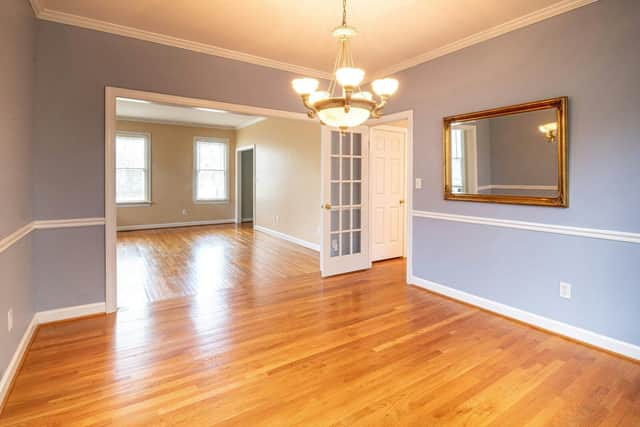Professional insights: deciding between refinishing or replacing your hardwood floor
and live on Freeview channel 276
We spoke with the team at Classic Parquet to get their expert opinion on the matter, "When deciding between refinishing or replacing your hardwood floors, it's essential to consider the age and condition of your floors first. Refinishing is a cost-effective solution that can bring out the natural beauty of your wood, provided the floors are structurally sound and haven't been refinished multiple times already.
However, if your floors are severely damaged, warped, or have extensive termite damage, replacing them might be the more practical choice. Consider the long-term value as well; while refinishing is less expensive upfront, new hardwood floors can increase your home’s value and have a longer lifespan. Always consult with a professional to assess the specific conditions of your floors and to ensure that whichever option you choose, it aligns with your home's aesthetics and your personal preferences."
Should you replace or refurbish your hardwood flooring?


Advertisement
Hide AdAdvertisement
Hide AdWhen it comes to deciding whether to replace or refurbish your hardwood flooring, the choice is not always clear-cut. Both options have their merits and drawbacks, and the right decision depends heavily on your specific situation and needs. Here, we explore the pros and cons of each choice to help you make an informed decision.
Refurbishing hardwood flooring:
Refurbishing, or refinishing, involves sanding down the existing hardwood floor to remove the old finish, any scratches, dents, or stains, and then applying a new finish. This option can breathe new life into old floors, restoring their original beauty and charm.
Pros:
- Cost-Effective: Refurbishing is typically less expensive than replacing the entire flooring, making it a budget-friendly option for those looking to improve their floors without a significant financial outlay.
- Environmental Impact: By retaining the existing flooring, you're contributing to environmental sustainability by reducing waste.
- Preservation of Character: If your home has antique or unique hardwood floors, refurbishing can preserve the original character that might be lost with replacement.
Cons:
- Limited to good condition floors: this option is only viable if the wood is in good condition. Floors with extensive damage, rot, or those that have been refinished multiple times may not be suitable for refurbishing.
- Temporary solution: while refurbishing can significantly improve the appearance of your floors, it doesn't address structural issues or extend the life of the flooring as much as replacement might.
Replacing hardwood flooring:
Replacing involves removing the old flooring and installing new hardwood. This option is considered when the floors are beyond repair or when a completely new look is desired.
Pros:
- Long-term solution: new flooring can last for decades, providing a long-term solution to your flooring needs.
- Modern options: replacement allows you to choose from a wide variety of modern flooring options, including different types of wood, finishes, and installation methods.
- Addresses structural issues: If there are underlying issues with the subfloor or the existing flooring is severely damaged, replacing it can address these problems effectively.
Cons:
- Cost: replacement is generally more expensive than refurbishing, both in terms of materials and labour.
- Environmental impact: removing old flooring and installing new materials can have a greater environmental impact due to the production and disposal involved.
Ultimately, whether you should replace or refurbish your hardwood flooring depends on your specific situation and needs. If your floors are in good condition and you're looking for a cost-effective way to enhance their appearance, refurbishing may be the way to go. However, if you're facing structural issues, desire a completely new look, or have floors that are beyond refurbishment, replacement might be the better option. Both choices have their place in the world of home improvement, and the right decision hinges on balancing practicality, budget, and aesthetic desires.